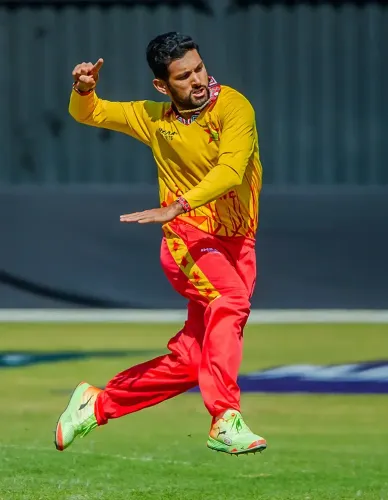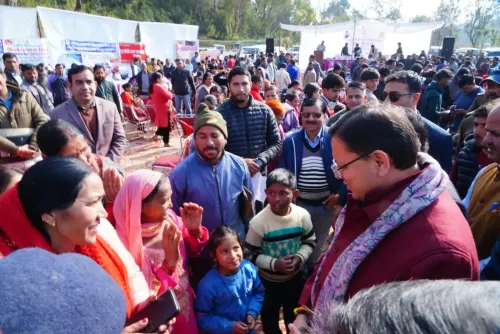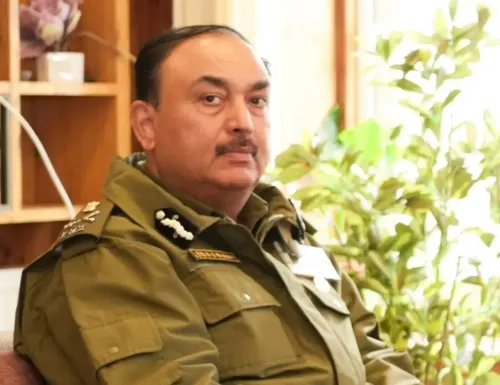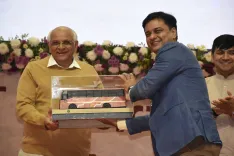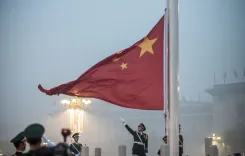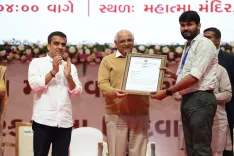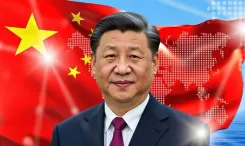Did Social Media Users Fact-Check Peter Navarro's Comments on India's Russian Oil Trade?
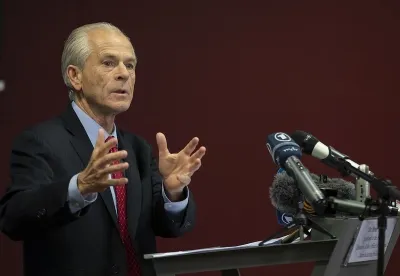
Synopsis
Key Takeaways
- Peter Navarro's remarks about India's oil trade have sparked significant backlash.
- A community note on X fact-checked Navarro's claims.
- India maintains that its oil trade is vital for energy security.
- The relationship between India and the US remains critical despite tensions.
- Diplomatic dialogue is essential for international relations.
Washington, Sep 7 (NationPress) White House Advisor Peter Navarro experienced a significant backlash on Sunday after a community note on X flagged his comments regarding India's purchase of Russian oil.
This time, a group of X users fact-checked him, asserting that the oil trade was conducted "for energy security, not merely profit," and emphasized that it did not breach any sanctions.
Navarro criticized India's dealings with Russia, claiming it was "purely to profit/Revenues feed Russia's war machine." The community note countered by pointing out, "While India imposes certain tariffs, the US maintains a trade surplus with India in services. The US also continues to import specific commodities from Russia, which is hypocritical."
Labeling the community note as "crap," Navarro expressed his frustration towards Elon Musk for allowing what he termed propaganda into users' posts, while again accusing India of exploiting the oil trade with Russia.
"That crap note below is just that. Crap. India buys Russian oil solely to profiteer. It didn't buy any before Russia invaded Ukraine. The Indian government's spin machine is in high gear. Stop killing Ukrainians. Stop taking American jobs," Navarro stated.
On Friday (US local time), Navarro's remarks were in response to an article from the Washington Post, which highlighted conflicting efforts within Trump's administration to repair relations with India.
President Trump seemed to have softened his previous stance about "losing" India to China, stating at a White House press conference, "I’ll always be friends with Prime Minister Modi" and referred to him as a "great Prime Minister." In turn, Indian PM Modi expressed appreciation for Trump's remarks, emphasizing the positive trajectory of Indo-US relations.
Modi stated, "Deeply appreciate and fully reciprocate President Trump's sentiments and positive assessment of our ties. India and the US have a very positive and forward-looking Comprehensive and Global Strategic Partnership."
These comments followed a wave of criticism directed at India from the Trump administration and its supporters.
The Ministry of External Affairs (MEA) on Friday dismissed Navarro's ongoing tirade against India, labeling his statements as "inaccurate and misleading."
"We have seen the inaccurate and misleading statements made by Mr. (Peter) Navarro and obviously, we reject them," MEA Spokesperson Randhir Jaiswal stated during a media briefing while addressing Navarro's comments regarding "Brahmins profiting."
Navarro's controversial remarks, made to defend President Donald Trump's 50 percent tariff on Indian goods, were characterized by analysts as "casteist" and "sinister," sparking significant outrage in India.
However, the MEA spokesperson reiterated that the relationship between India and the United States remains "very important" for New Delhi.
"India and the United States share a comprehensive global strategic partnership rooted in our mutual interests, democratic values, and strong people-to-people ties. This partnership has endured various transitions and challenges. We remain focused on the substantive agenda that both nations are committed to, and we hope that our relationship will continue to advance based on mutual respect and shared interests," Jaiswal added.
Earlier this week, Navarro criticized India's foreign policy, questioning PM Modi’s recent interactions with Russian and Chinese leaders at the Shanghai Cooperation Organisation (SCO) Summit in Tianjin, asserting that "India needs to be with us, not Russia."
In an interview with IANS, Edward Price, a political economist and former head of Economic Policy at the British Consulate General in New York, condemned Navarro's ongoing attacks on India, describing it as a "shame."
Price emphasized that Navarro’s attempt to "instruct" a sovereign nation like India fails to grasp the essence of diplomacy.
"It is also historically illiterate. India has always followed its own path, culturally, politically, and otherwise. It is a unique nation with its own approach to statecraft. We shouldn't be telling India what to do; rather, we should be offering a fair and friendly proposition," he concluded.


